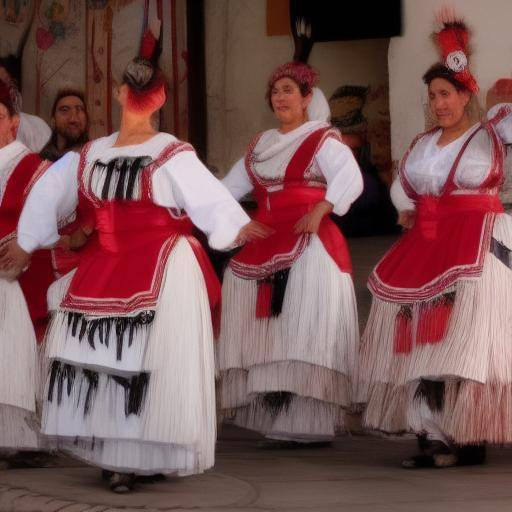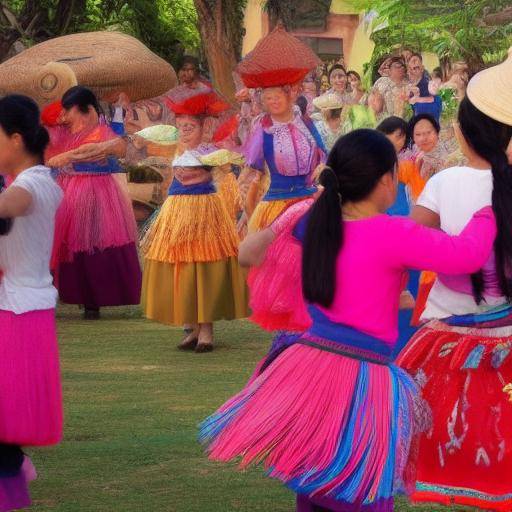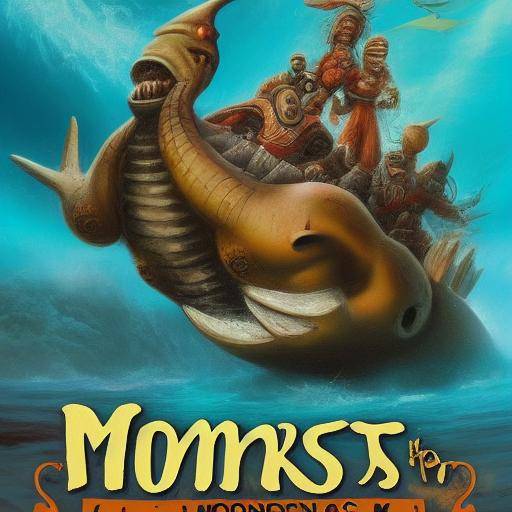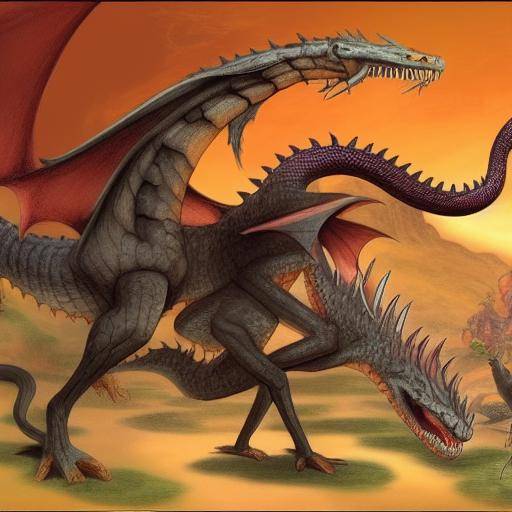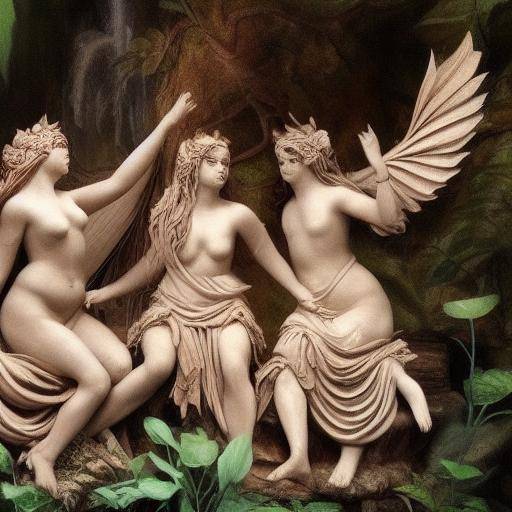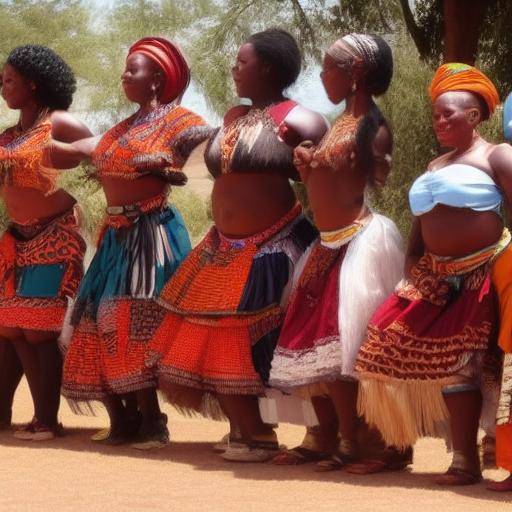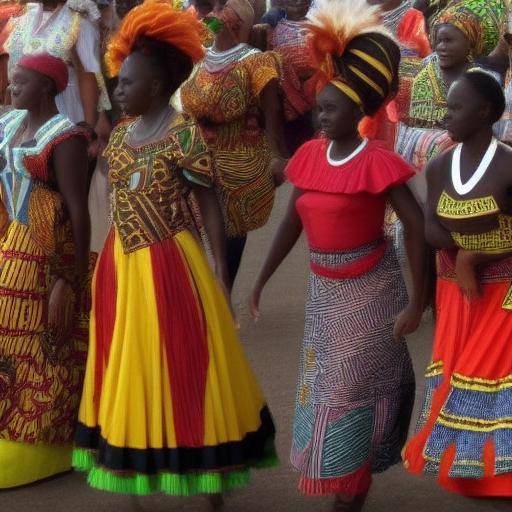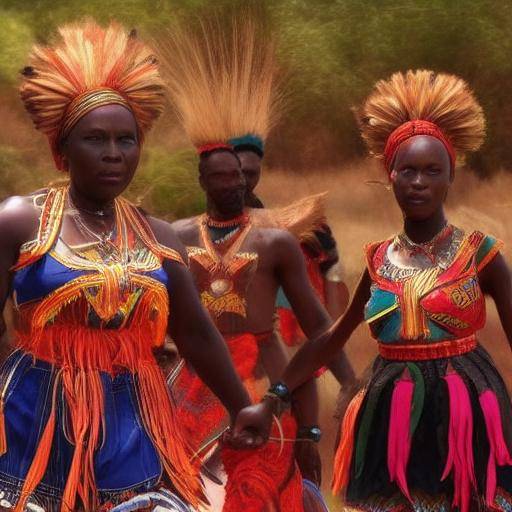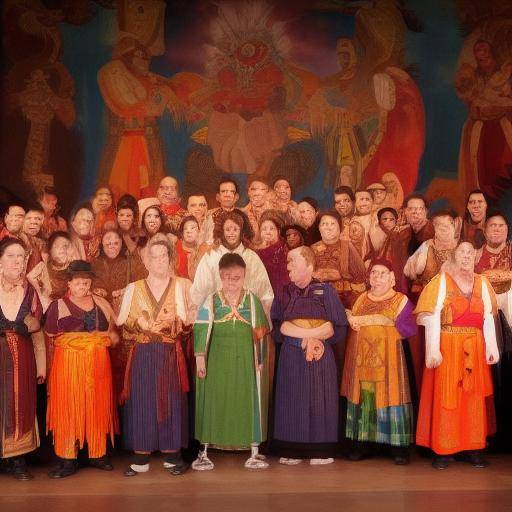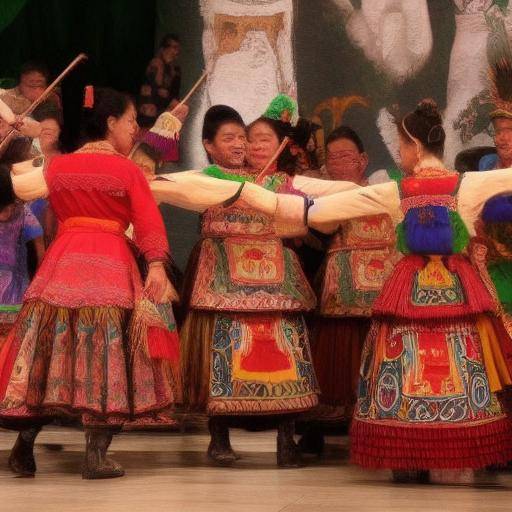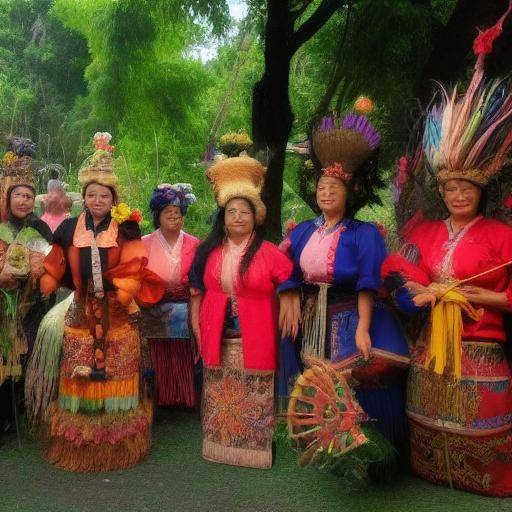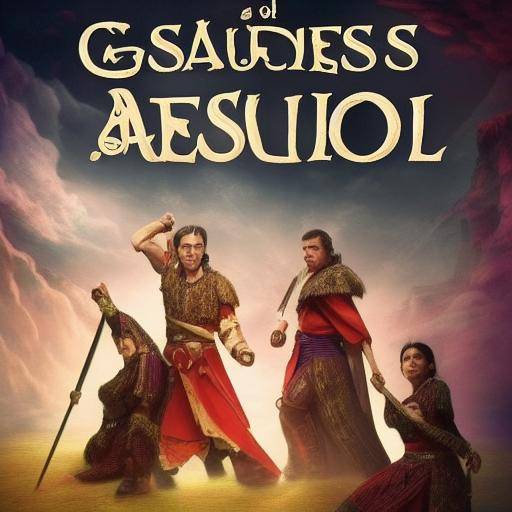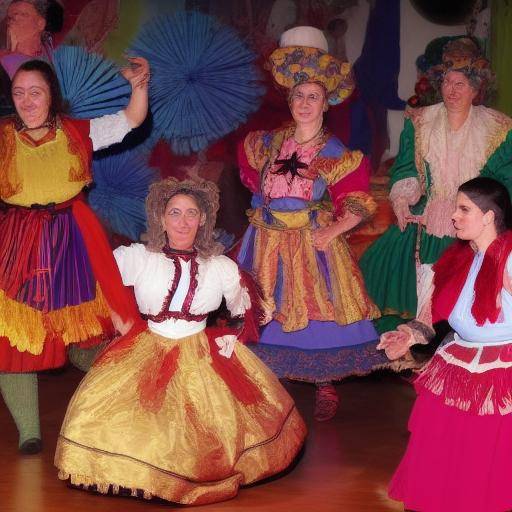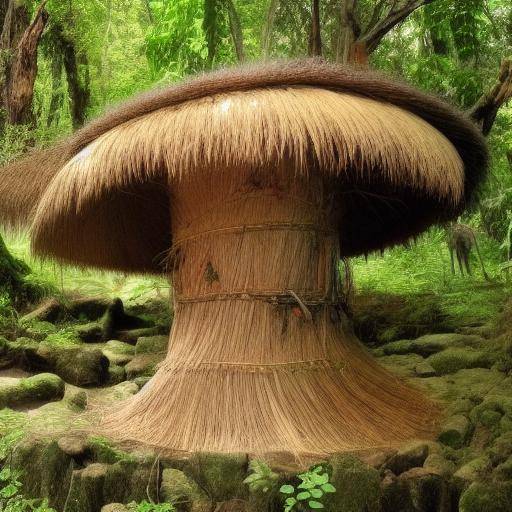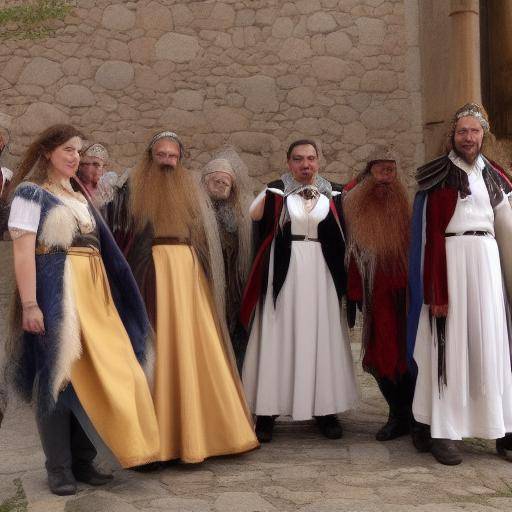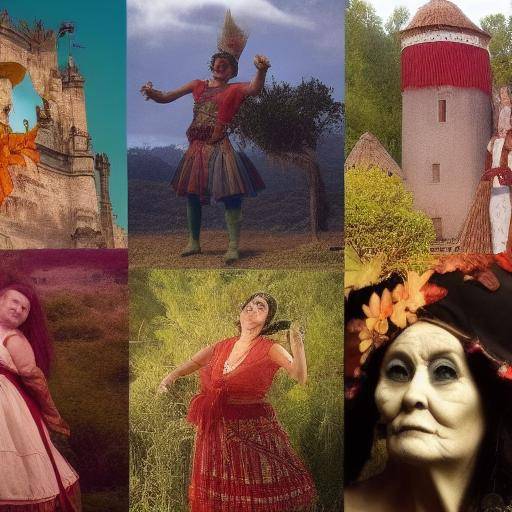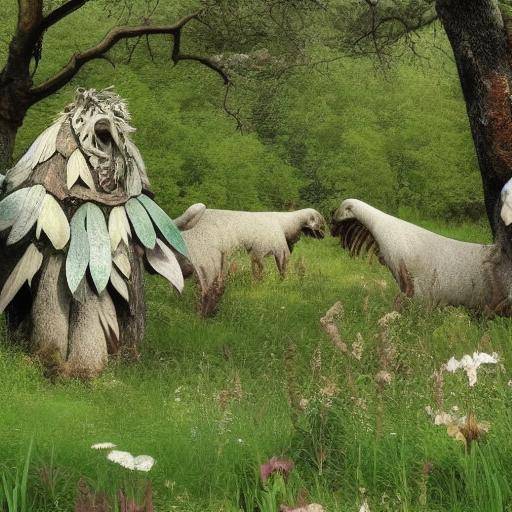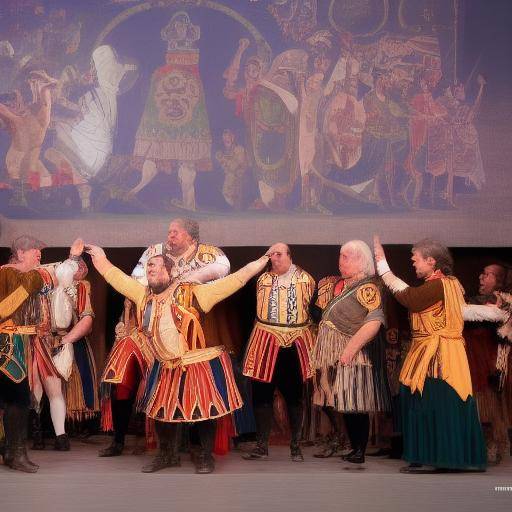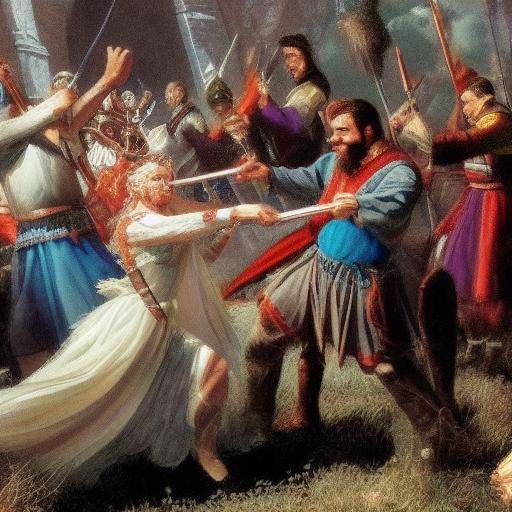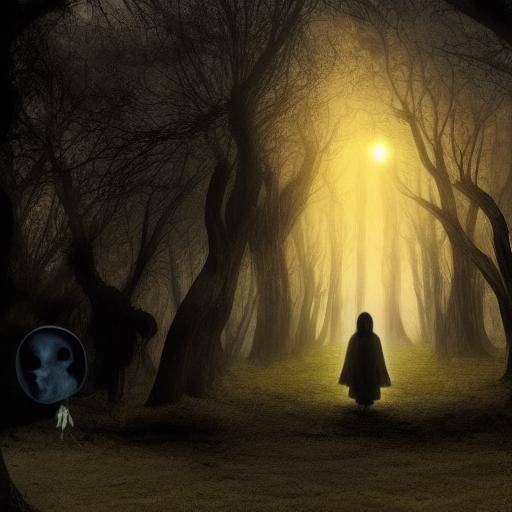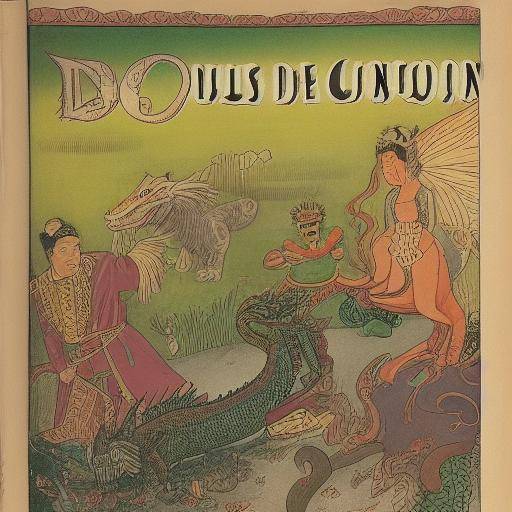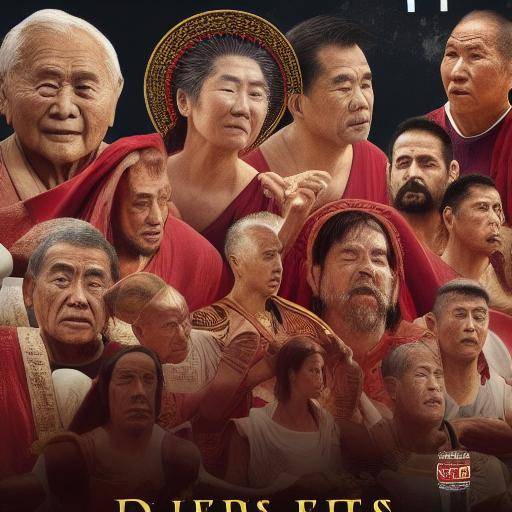
The rich and diverse Asian culture is permeated with fascinating mythologies that have been transmitted through generations. The gods and spirits that dominate these legends often offer a unique window to the history, beliefs and values of Asian civilizations. In this article, we will explore in detail the spiritual and mythological richness that resides in Asian legends, focusing on gods, spirits and their fascinating interactions. From ancient China to Japan, through India and beyond, we will discover the divine and spiritual entities that have captured the imagination of so many over the centuries.
Introduction
Asian legends are loaded with gods and spirits that emerge from a rich cultural heritage, offering unique perspectives on nature, morality and the universe. In this article, we will enter this vast world of myths and legends, exploring the diversity of gods, spirits and their stories in different Asian cultures. From ancient Hindu deities to the mysterious Japanese creatures, this journey through Asian legends will lead us to better understand the beliefs and traditions rooted in these ancient cultures.
History and Background
Mythology in Asia: Roots and Evolution
Asian mythology dates back to millennia, rooted in the first civilizations that inhabited these territories. From the Vedas of India to the classic Chinese texts, mythological accounts have served as vehicles to convey the cosmology, morals and folklore of these ancient cultures. Throughout history, these narratives have evolved, adapting to social and political changes, while preserving their essential elements.
Main Deities and Mythological Figures
In all Asian cultures, we can find a myriad of gods and spirits that represent different aspects of the cosmos and human existence. From the Hindu gods like Brahma, Vishnu and Shiva, to the Japanese kami and the Chinese mythical beings, these deities have played fundamental roles in the worldview and spirituality of their respective cultures. His epic stories and divine attributes have left an indelible mark on the collective imagination of Asia.
Significant Milestones and Developments
Over the centuries, Asian mythology has experienced significant changes, influenced by cultural contacts, conquests and philosophical developments. The arrival of Buddhism and Taoism, for example, integrated new divinities and teachings in the Asian spiritual landscape, further enriching the mythological panorama. The influence of Greek and Persian mythology also left an indelible mark on some Asian traditions, leading to fascinating syncretisms.
Deep analysis
The Role of Gods and Spirits in Society
Deities and spirits in Asian legends not only fulfill religious functions, but also play fundamental roles in everyday life and morality. From veneration in temples to inclusion in festivals and ceremonies, these divine entities continue to influence contemporary society, serving as anchors of cultural and ethical identity. The presence of spirits in daily life, for its part, remains a rooted belief in many Asian communities, manifesting itself in rituals, superstitions and traditions.
Challenges and Disputes in Interpretation
The interpretation of Asian legends, especially concerning gods and spirits, has been the subject of debate and controversy. Western influence, scientific advances and secularization have posed challenges to the traditional understanding of these entities, generating tensions between entrenched traditions and more contemporary visions. Mythological narratives have often been reinterpreted in literature, cinema and other forms of art, generating discussions about cultural authenticity and lasting meaning.
Comprehensive review
Applications in Modern Life and Current Practices
Despite social and technological changes, Asian legends continue to play a crucial role in modern life. From the influence on literature and music to its presence in festivals and rituals, Asian mythology remains a beacon of inspiration and meaning for millions of people. Spiritual practices based on these traditions, such as meditation and veneration to the ancestors, offer a direct connection with these ancient narratives in the contemporary era.
Perspectives of Future Experts and Trends
Experts in Asian mythology have thoroughly analysed their impact on current society and noted emerging trends. Interdisciplinary research has revealed new layers of meaning in Asian legends, while comparative studies have shed light on transcultural connections and the global influence of these narratives. The future of Asian legends and their relevance in a globalized world remains the subject of study and debate between academics and enthusiasts.
Comparative analysis
Divinities in Asia: Comparisons and Contrasts
By comparing the different mythological traditions of Asia, we observe fascinating similarities and contrasts between divine deities and spirits. While some cultures share mythological figures with similar properties, such as the heavenly gods in China and India, others present unique pantheons that reflect the cultural and geographical particularities of each region. Understanding these similarities and differences allows us to appreciate in a deeper way the diversity and wealth of Asian mythology.
Myths and Spirits: Cultural Interactions and Syncisms
Interactions between the various mythological traditions of Asia have led to cultural syncretisms, manifesting itself in the exchange of myths, symbols and practices. The influence of Indian mythology in Southeast Asia, for example, has generated a rich amalgam of beliefs and gods. Similarly, the Buddhist heritage in Japan has influenced the conception of spirits and nature. These syncretisms not only enrich Asian legends, but also reveal the complex connections between cultures and traditions.
Practical Tips and Recommendations
Explore Asian Legends: Tips for Enthusiasts
For those interested in diving into Asian legends, there are various ways to explore and appreciate this vast legacy. Recommended readings, specialized museums and cultural festivals offer an immersion in these millenary narratives. Similarly, participation in traditional ceremonies and rituals provides an authentic experience of mythology in action. In understanding the historical and cultural context surrounding these legends, you can appreciate their lasting importance in Asian society and beyond.
Conclusions and FAQs
Conclusions
Asian legends, full of gods and spirits, continue to be an inexhaustible source of inspiration, wisdom and reflection in the modern world. The rich diversity of these mythological narratives reflects the complexity of Asian cultures and offers a unique window to understand their spiritual and cultural heritage. By exploring the interactions between gods, spirits and legends, we enter into a fascinating universe that transcends time and space, leaving an indelible mark on human consciousness.
Frequently asked questions
- What are some of the most important Hindu gods and their attributes?
- What is the difference between a Japanese kami and a spirit?
- How does Chinese mythology influence contemporary culture and society?
- What are the ancestral spirits and what is their importance in Asian traditions?
- What are the main festivals that celebrate legends and myths in different Asian cultures?
- How has Asian mythology been reinterpreted in modern literature and cinema?
In exploring these questions, we enter into the complex layers of meaning and relevance that Asian legends, gods and spirits have in today's world.
In short, Asian legends, impregnated with gods and spirits, offer a fascinating window to the history, spirituality and cultural identity of Asia's civilizations. From Hindu deities to Japanese spirits, these mythological narratives continue to inspire, challenge and enrich our understanding of the world. Its lasting impact is rooted in the very essence of Asian societies, offering an incomparable perspective on the spiritual and mythological richness of this region of the world.

